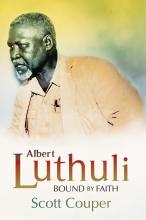
Year Published:
2010
Much public historical mythology asserts that Chief Albert Luthuli, former President of the African National Congress (ANC), launched the armed struggle upon his return to South Africa after receiving the Nobel Peace Prize. This misinterpretation sparks what is arguably one of the most relevant and controversial historical debates in South Africa.
Due to Luthuli’s domestic and international prominence and impeccable moral character, liberation struggle icons, political parties and politicians justify in part their past actions and their contemporary relevance upon a contrived historical memory. Often that memory is not compatible with the archival record. Contrary to a nationalist inspired historical perspective, in this book Scott Couper argues that Luthuli did not support the initiation of violence in December 1961.
Luthuli’s ecclesiastical tradition, Congregationalism, embedded within him the primacy of democracy, education, sacrificial service, multiracialism and egalitarianism, propelling him to the heights of political leadership. However, these same seminal emphases rendered Luthuli obsolete as a political leader within an increasingly radicalised, desperate and violent environment. While Christian faith fuelled his political success, it engendered the inertia for his irrelevance following the ANC’s resort to violence. By not supporting the ANC’s armed movement, Luthuli’s political career proved to be ‘bound by faith’.
